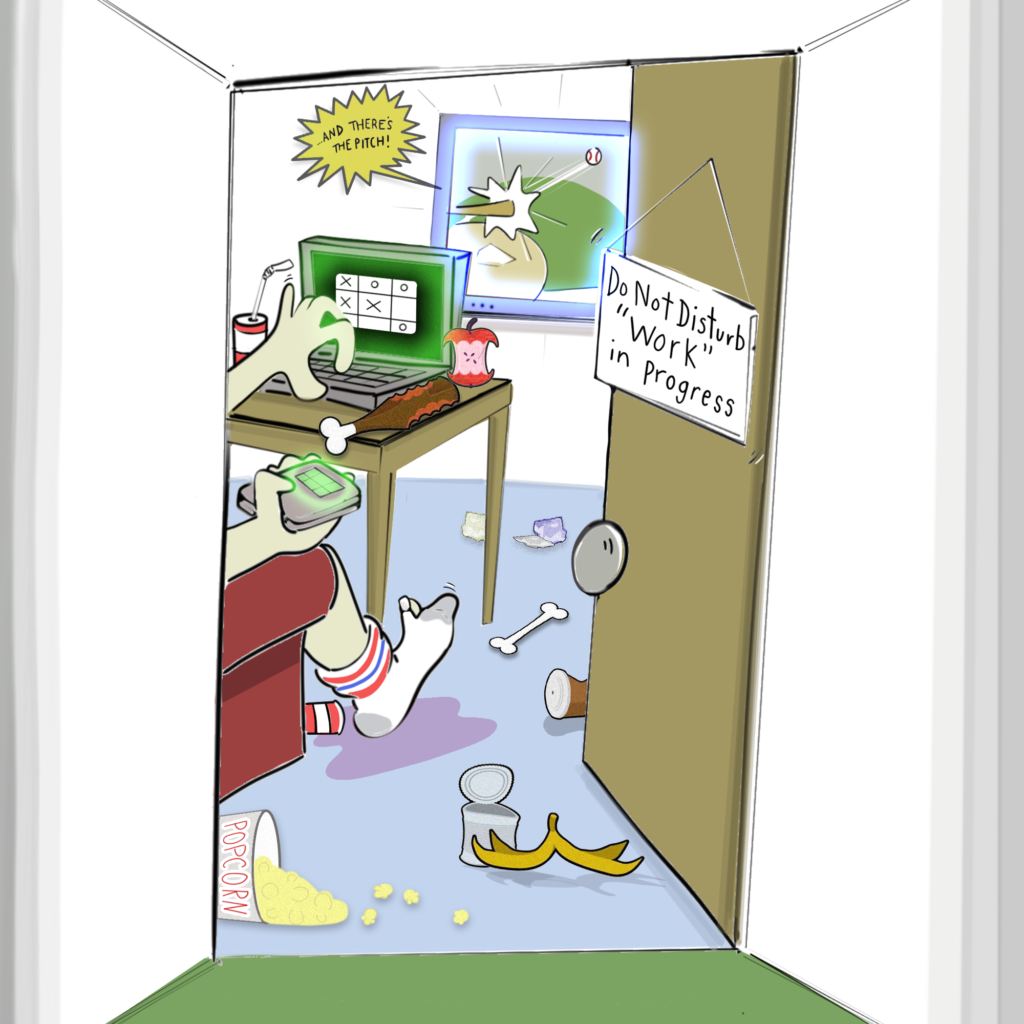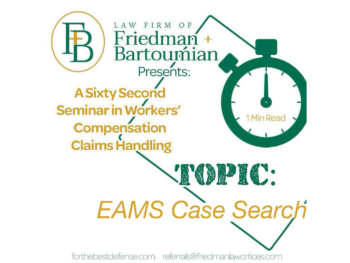Written by Haik K. Bartoumian, Esq.

Introduction: California workers’ compensation law allows injured workers to perform light-duty work at the employer’s facility and elsewhere, including working remotely from home. There are both advantages and disadvantages of working remote which must be considered as more fully discussed below.
Also below is a section on applicable case law as well as three recommendations employers should consider when allowing employees to work remotely from home.
Advantages:
1. By working light-duty from home, injured employees remain productive and do not fall into a disability syndrome that would otherwise allow them to get accustomed to being off work for a prolonged period of time.
2. Through Senate Bill 1159 the state of California actually rewards employers who allow employees, including injured workers on light-duty, to remotely work from home. SB 1159, effective 9/17/2020 through 1/1/2023, codifies and supersedes Executive Order N-62-20. This senate bill pertains to all California employees who work at the direction of the employer at a jobsite other than their home. Because of the added danger of not being allowed to work from home, should the worker become ill due to the COVID-19 virus, the illness is rebuttably presumed compensable under workers’ compensation law. However, the presumption of compensability of COVID-19 does not apply to employees who are directed to work remotely from home.
Disadvantages:
1. When working from home the employer loses control over the work environment where job safety may become an issue. Employer controlled ergonomics no longer apply. Cumulative injuries may develop due to poorly designed work stations and use of non-ergonomic equipment. Injuries while working at home are often found compensable under California workers’ compensation law as it is an extension of the worksite.
2. Verification of accident is also more difficult when an injury occurs at home as there are no witnesses to the alleged event.
3. The personal comfort doctrine applies in California, including when the employees work from home. Getting a drink of water, taking a break to get a cup of coffee or tea, and going to the restroom are all work related events due to the personal comfort doctrine. The same holds true when working remotely at home.
Case Law Citations:
The following California case law applies to all employees working from home, regardless of whether they are on full or light duty:
1. Injuries suffered by employees while performing their regular work duties at a fixed place of business, in a manner authorized by the employers, are generally always in the course of the employment. A. & G. Corp v. Industrial Acc. Com. (Nelson) (1919) 180 Cal. 389, 182 P.35. The fixed place of business is unlimited and includes working remotely from home.
2. If an employee is required by the employer to work at both the employer’s premises and at home, the employee is deemed to be in the course and scope of employment when traveling between these two locations. Bramall v. W.C.A.B. (1978) 78 Cal. App. 3d 151, 158.
3. California courts have ruled that work in general, including working from home, involve actions having an incidental benefit to the employer. Santa Rosa Junior College v. W.C.A.B. (Smyth) (1985) 40 Cal. 3d 345, 356. Once a benefit to the employer is established the duties fall within the course and scope of employment.
4. However, not every injury that occurs at home is compensable. There must be a connection to employment. If the connection to employment is too remote, the injury will not be compensable. Madin v. IAC (Richardson) (1956) 21 CCC 49, 52. An employment benefit to the employer must exist before an injury is compensable. Liberty Mutual. Ins. Co. v. I.A.C. (Dahler) (1952) 39 Cal. 2d 512, 516; Hinkle v. W.C.A.B. (1985) 175 Cal. App. 3d 587, 591; Osbun v. W.C.A.B. (1979) 93 Cal. App. 3d 163, 168; Dalgleish v. Holt (1952) 108 Cal. App. 2d 561, 565–566.
5. For case law citations concerning the injuries attributed to the personal comfort doctrine please see Western Greyhound Lines v. Industrial Accident Commission (Brooks) (1964) 225 Cal. App. 2d 517, and also Fireman’s Fund Indemnity Co. v. Industrial Accident Commission (Elliott) (1952) 39 Cal. 2d 529.
Three Recommendations:
1. Clearly define what is considered work when performing duties at home. Establish clear policies governing the terms and conditions, including identifying the business-hours employees are to be working. Work performed outside those hours is to be forbidden, with no exceptions. Everything is to be in writing and signed by the employee acknowledging these procedures. We want to avoid employees claiming they were injured while working at home at 9:00pm when the business day ended at 5:00pm. Without clearly established policies concerning work hours, an employer becomes a sitting duck as every home injury could result in a compensable workers’ compensation claim.
2. Employees should have a designated area at home where they are to work. That way injuries occurring in other parts of the house would require a good explanation of why the employee was not in the pre-designated area when injured, resulting in a work comp claim. Photographs of the work area should be presented to the employer and reviewed by appropriate management to double-check safety protocols. Corrective action may need to be taken to upgrade the work environment to conform with all safety standards. Ergonomic issues can also be addressed in this process.
3. Establish an online reporting portal for hourly workers to clock in and out when they work, go to lunch, and quit for the day.


 The Misapplied Law: A Sixty-Second Seminar in Workers’ Compensation Claims Handling
The Misapplied Law: A Sixty-Second Seminar in Workers’ Compensation Claims Handling
Leave a Reply